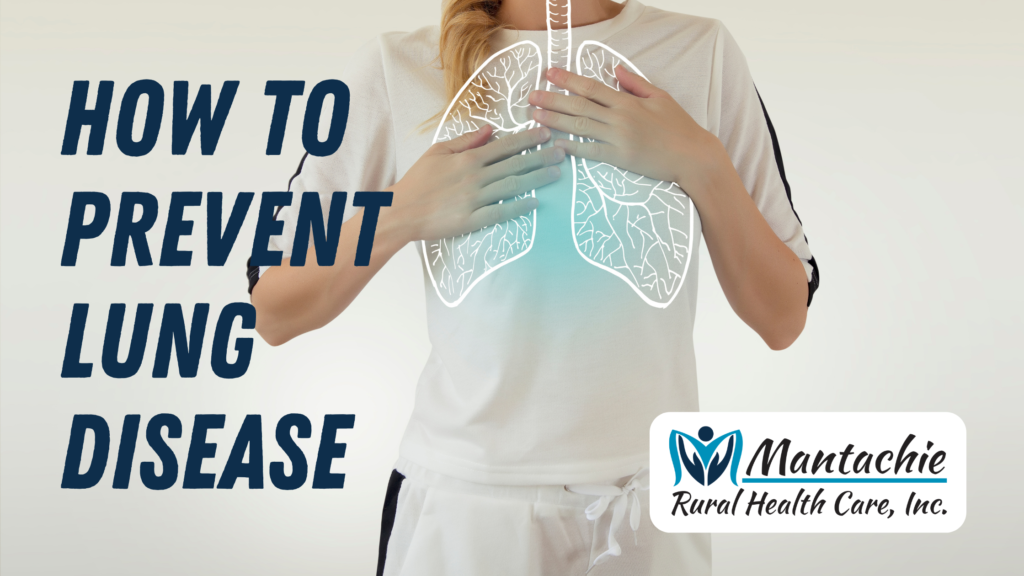
Lung disease refers to any disorder affecting the lungs. These illnesses include but are not limited to asthma, chronic obstructive pulmonary disease (COPD), infections including pneumonia and influenza, and lung cancer. Lung disease is a common cause of death in both men and women. Thankfully, you can prevent or reduce your risk of developing lung disease with these steps.
Signs and Symptoms of Lung Disease
One of the best ways to reduce your risk of a disease is to get educated on its causes and symptoms, as well as ways to prevent it. Signs and symptoms of lung disease include:
- Trouble breathing
- Shortness of breath
- Feeling like you aren’t getting enough air
- Persistent, chronic cough
- Coughing up blood or mucus
- Pain or discomfort when breathing
Causes and Prevention
Although it is possible for lung disease to develop with no known cause, most cases can be traced back to a certain cause. Smoking any type of tobacco or marijuana product and exposure to asbestos, radon, and air pollution are the most common causes of lung disease. Preventing these exposures are part of the many steps you can take to reduce your risk of lung disease. Prevention steps include:
- Quitting or never starting smoking.
- Avoiding exposure to secondhand smoke. Ask smokers to take it outside both at home and in the workplace. Avoid public places that allow smoking.
- Test for radon. Exposure to high levels of radon can lead to lung disease. Test kits are available in most hardware stores and you can visit the Environmental Protection Agency’s website to learn more about dealing with radon.
- Avoid exposure to asbestos. Workers who are exposed to insulation and other materials containing asbestos as well as mechanics who work on car brakes and clutches are at risk for exposure. Wear a mask and protective clothing and ask your employer about other ways to reduce exposure to asbestos.
- Protect yourself from dust or fumes. Those many masks you bought during the pandemic can also reduce your risk of lung disease by reducing your exposure to dust and fumes during certain household chores or work duties.
- Eat a healthy diet. Studies have shown that a diet rich in fruits and veggies helps prevent lung disease.
- Ask your healthcare provider if you should get a spirometry test. This test measures how much air you can breathe in and out as well as how fast you can blow air out.
- Ask your provider about vaccinations for the flu, pneumonia, and other infections that can lead to lung disease.
Are you concerned about your risk of lung disease? Your Mantachie Rural Health Care provider can help. Schedule a visit to discuss your concerns and get tested for certain lung conditions.


